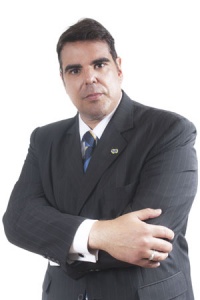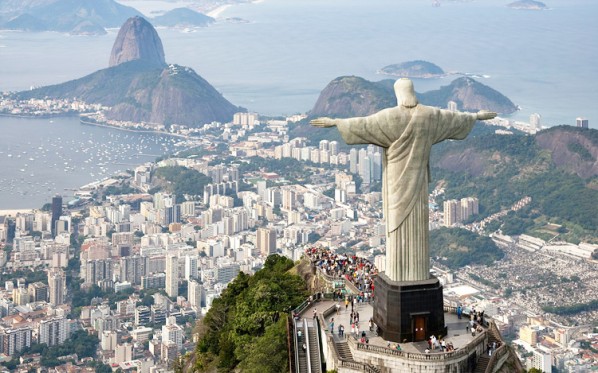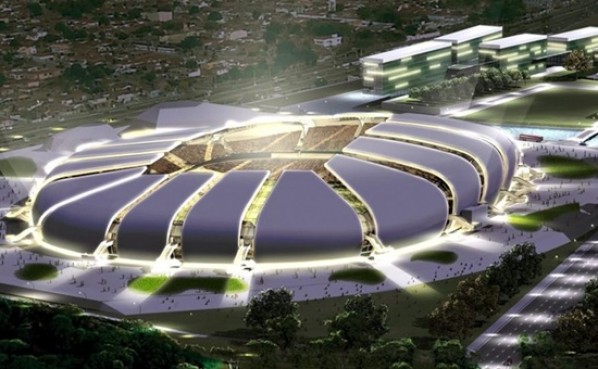Breaking Travel News Interview: Embratur director of products & destinations, Marco Lomanto

The next five years are set to belong to Brazil; with Rio de Janeiro set to host the Olympic Games in 2014 and the country as a whole gearing up to welcome the FIFA World Cup in 2016.
Both events are set to showcase an already emerging destination to a wider audience. A total of 5.1 million guests touched down in Brazil during 2010, according to the United Nations World Tourism Organisation (UNWTO) – an increase of more than seven per cent on the previous year.
New flights from European carriers, including British Airways, have also boosted airlift to the country from key source markets, while the growing economic strength of Brazil as a whole has seen domestic tourism continue to grow in importance.
However, it has not been plain sailing. A recent corruption scandal – which saw as many as 30 officials arrested – rocked the national tourism ministry, while construction work ahead both mega-sporting events has come under the spotlight.
Here Breaking Travel News sits down with Embratur director of products & destinations, Marco Lomanto, to discuss what comes next for this emerging tourism superpower.
Breaking Travel News: Thank you, Mr Lomanto, for joining us here in London. Preparations are well underway for the London 2012 Olympic Games, generating a growing sense of expectation. Have you been in contact with officials to see what you can learn from preparations for the Games?
Marco Lomanto: We have just begun an official search – along with the Brazilian government – to seek out a space for the Brazil House during the 2012 London Olympic Games.
We are working with London Organising Committee of the Olympic Games (LOCOG). They have helped us secure space in Somerset House for the Rio de Janeiro exhibition. Embratur is considering a number of options, on the South Bank for example. Here we are planning to promote all 12 for the 2014 FIFA World Cup. Perhaps also on Waterloo Bridge.
There will be separate spaces for both the Rio Olympic Games and Brazil FIFA World Cup; we have a lot to present at present.
We had a reunion only yesterday, between the two City Halls; we are learning best practices from VisitBritain and bench marking our preparations against their milestones. We are looking at their international promotion work and assessing if this can help us. Building up the incentives to travel – this will continue until the Olympic Games next year.
We have an accord with VisitBritain to assist us both in developing plans.
Breaking Travel News: How about South Africa? While the country is credited with hosting a successful World Cup in 2010 there were suggestions tourism insiders could have done more in the aftermath of the event to support the industry?
Marco Lomanto: With South Africa we had a similar situation.
We began last year, when we launched a campaign to promote Brazil during the last FIFA World Cup. London is the second partner we have been working with to develop our plans – this is the second period of our preparation ahead of both of these events.
Breaking Travel News: How would you describe your relationship with FIFA? They have developed a reputation as very demanding partners when it comes to hosting the World Cup.
Marco Lomanto: There are limits to what we can do. The FIFA World Cup is a private event; it is our job to promote the country in co-ordination with the event. It is not our job to promote the event.
As the Brazilian tourist board, we see this event as part of our strategy to develop our strengths – to build relationships with suppliers, overseas tourism organisation.
The legacy of the World Cup will be equally important – the image of the county firstly, but also the physical legacy, the renovation of existing airports, construction of new facilities.

Rio de Janeiro will host the Olympic Games in 2016
Breaking Travel News: How are these preparations going? Brazil will host the FIFA Confederations Cup in 2013 as a preparation event for the World Cup, but there have been accusations in some quarters the country is behind schedule on its building programme.
Marco Lomanto: Everything is on schedule. Four stadiums will be ready in March 2013, with two more prepared in time for the Confederations Cup.
By the beginning of 2014 all stadiums will be ready.
We are working with the states to coordinate the costs, using central government, local and private revenue to finance the building work.
We have a strong relationship with FIFA. However, our objective is to develop the image of Brazil – not the competition.
Breaking Travel News: Outside of the infrastructure developments in Brazil, how do you hope the country will benefit from hosting the tournament?
Marco Lomanto: The competition will allow us to train over 8,000 new tourism professionals – all of whom will work directly with the competition.
We are working on a programme called World Cup Welcome in which we are investing time – training professionals ahead of the event. More than 80,000 tourism workers will be trained in English and Spanish ahead of the arrivals.
Breaking Travel News: What sort of visitor numbers are you expecting during the FIFA World Cup? South Africa estimated it would see one million additional visitors during the competition but ended up seeing a fraction of this.
Marco Lomanto: We are expecting three million domestic trips during the duration of the tournament. From overseas we are expecting an additional 600,000 guests.
We are very realistic on our numbers. Brazil is expecting a great impact from the World Cup – it has a lot more diversity to offer fans.
Brazil is one of the biggest tourism destinations in the world – there is a great deal to see. We are expecting a great deal of families to travel, not just ‘male’ trips.
Embratur expects people to take in a game, but also to visit our beaches, other tourist attractions. It is very important we develop the offering of all 12 cities; special itinerates in and around those cities will be on offer.
Breaking Travel News: There is a chance sport could actually have an impact on where these visitors arrive from. Could you talk us through that?
Marco Lomanto: Source markets will of course depend on qualifies for the tournament.
Perhaps 60 per cent will be from South America; Paraguay, Argentina and Uruguay. From Europe, France, Spain and England – but it depends who is classified for the tournament; France and Spain for example are in the same group!
Americans, from Florida, New York and the East coast, are also expected to visit.

A total of 12 Brazilian cities will host the 2014 FIFA World Cup
Breaking Travel News With the merger of LAN and TAM Airlines proceeding as planned, how do you view the future of airlift into Brazil?
Marco Lomanto: There are a lot of flights for fans to choose – Fortaleza, in the north east for example, is well served. It is not just a case of visiting Rio de Janeiro or São Paulo – there a lot of entry points for people from Europe.
Brazil as a whole has benefited from its rise on the global stage. We are a modern country; a country prepared to host major events.
We have a strategy in place to develop MICE tourism in the 12 cities hosting the World Cup. We are already in the top ten global destinations for MICE tourism – this is a position on which we can build.
There are a lot of options – Lufthansa, Iberia, KLM-Air France.
British Airways just increased the frequency of its services to Rio de Janeiro with TAM Airlines has also been strong.
At World Travel Market will we work with British Airways to launch a new campaign to make people aware of their options. There will be a display in London; we plan to customise 200 taxis and look out for an event at the IMAX.
We are also considering sponsoring either the 2012 or 2013 World Travel Market – but nothing is confirmed yet. We remain in discussions.
The merger of TAM Airways and LAN will have a positive impact on Brazilian tourism. As Embratur we cannot get involved with the plans – but out analysis suggests it is a good thing.
Breaking Travel News: Do you feel Air Passenger Duty has in any way curtailed this growth?
No, I don’t think Air Passenger Duty is having an impact on travel to Brazil. The number of flights and arrivals is increasing.
It would be better not to have these taxes of course. But there is no real impact.
Breaking Travel News: Brazil has just witnessed a change of political leadership with the election of Dilma Rousseff to the office of president. Will this have an impact on the tourism sector?
Marco Lomanto: Dilma Rousseff has offered her support to the tourism sector. It is a very important sector for her, to open Brazil to the world.
The two big events – the FIFA World Cup and Olympic Games – are key to showing the country as a modern, business friendly destination.
To show Brazil is open to foreign investment.
Breaking Travel News: Ms Lomanto has attempted to root out corruption in the Brazilian tourism industry with the recent arrest of 30 officials and business leaders - including deputy tourism minister Frederico Silva da Costa. Will this have any negative impact on your work?
Marco Lomanto: This is something which is very old - Dilma Rousseff has taken the issue seriously. Measures have been taken and the matter is closed.
This is not for the future of Brazil. It is finished. This will not stop our work.
Breaking Travel News: Thank you for your time Mr Lomanto – we will see you again at World Travel Market to see how preparations are going.

